With the untimely and tragic passing of Marcus Mumford, RANGEFIRE! is posting this tribute to him written in 2018 by attorney, rancher and author, Todd Macfarlane. Marcus was Ammon Bundy’s lawyer, and became well-known across the west for his role as the rancher’s defender, and made national headlines when he was wrongly arrested in the courtroom moments after Ammon Bundy was exonerated by a federal jury. ~Ed.
NOTE: This article was first published in Range magazine, and earned an award from the Nevada Press Association.
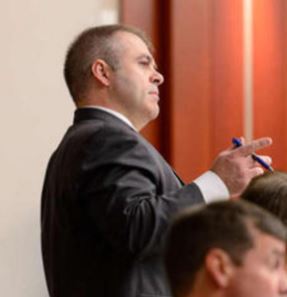
PAYING THE PRICE
At approximately 4:15 p.m. on Thursday, Oct. 27, 2017, after a six-week trial and week-long deliberations, the federal jury in the Oregon Standoff Trial returned a unanimous verdict of Not Guilty. It was a grand slam for Attorney Marcus Mumford in the biggest case of his career.
Mumford’s immediate reward for this remarkable victory was to be tackled in the courtroom by a full squad of U.S. Marshals while attempting to address Judge Anna Brown. They took him to the ground, pounded his head into the floor, hit him with a Taser, handcuffed him, and threw him in a jail cell. All this for arguing that his freshly acquitted client, Ammon Bundy, should be released from incarceration—at least long enough to hug his wife, if not spend a few days helping with the family apple harvest.
BACKGROUND
I’m going to state my biases right out of the chute. After more than 25 years as an attorney, and 30 years closely associated with the legal profession and the judicial system, I acknowledge that I have become jaded about most lawyers, the legal profession in general, as well as many judges, and what I often now refer to as the “so-called justice system.”

On several occasions over the past few years I have attended high-falutin’ legal functions, where speakers, including lawyers, judges and so-called “experts,” have waxed eloquently about the “noble” legal profession and the nobility of lawyers. And, it would be impossible to count the number of times on such occasions that speakers have invoked Atticus Finch in “To Kill a Mockingbird,” as if he’s the only example they can conjure up of that noble ideal they love to talk about.
I recently attended a federal litigation seminar where a well-seasoned federal judge was again talking about the nobility of lawyers and the legal profession, and invoking Atticus Finch as the classic example of lawyerly nobility—based largely on Atticus’ representation of a culturally unpopular, underdog client. The judge also suggested, however, that if we look back almost 250 years to John Adams, with particular reference to Adams’ legal defense of the British soldiers who killed protesters in the Boston Massacre of 1770, we might actually find a real-life Atticus Finch, who courageously represented some very unpopular clients of that time.
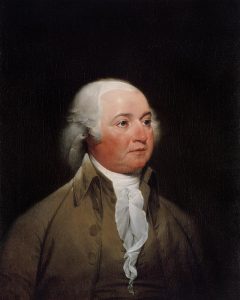
But do we honestly have to go back 250 years to find a real-life attorney close to the Atticus ideal that everyone invokes? What about Marcus Mumford, and his representation of Ammon Bundy, who was the epitome of current cultural disdain — especially in Portland, Oregon?
Judges, these days, will lament what is often described as the “demise of trial lawyers.” This is symptomatic of the so-called justice system, as cases drag on for years in “discovery,” while lawyers milk them for all they’re worth, but usually settle before going to trial. Add to that the 97+% conviction rate in federal criminal cases and it’s no wonder that hardly anyone—except Marcus Mumford—dares take the risk of going to trial.
Portland Federal Judge Anna Brown, who presided over the Oregon Standoff trials, has been quoted as saying: “The federal government has so many resources at its disposal, and is so meticulous in its work, that I would never expect to see a criminal defendant acquitted in my court.”
So much for the constitutional presumption of innocence until proven guilty beyond a reasonable doubt!
After spending a week observing the first Oregon Standoff trial, I wrote an article titled: “Addressing Judicial Bias — the Elephant in the Room,” in which I accused Judge Brown of grossly disparate treatment of the parties. Las Vegas Chief Federal Judge, Gloria Navarro, however, makes Brown look mild by comparison.
What I have learned since then is that this is not unique to the Bundy cases. According to a growing body of evidence, federal judges have become so accustomed to favoring the prosecution that they no longer seem to recognize what they’re doing.

Case in point: A recent article that described the experience of one of Utah’s relatively newly-appointed federal judges, Jill Parrish, who first served for 13 years as a justice on the Utah Supreme Court. Unlike the other more seasoned federal jurists, Parrish wasn’t quite so used to giving the prosecution preferential treatment. In one of her written decisions she openly chastised a federal prosecutor for his work in the case, including efforts to mislead the court. In response, one of the supervising prosecutors requested a favor. Judge Parrish thought the supervisor might apologize for what had happened but, instead, she was blindsided with a demand to edit and remove the critical language from her written opinion!
Daniel Medwed, a professor of law at Northeastern University in Boston, says the events in Parrish’s court are part of a growing national debate, “because while prosecutors are very rarely criticized in court, the failings of defense attorneys are routinely highlighted.”
In reaction to this, Troy Rawlings, a prominent Utah State Prosecutor said: “Prosecutors should not be in bed with judges, should not act like they think they are, and should not be perceived as being in bed with the judiciary…. The expectation of federal prosecutors that the judge would even entertain such a request, ‘underscores how they have become very accustomed to having more deference than defense attorneys and defendants.’ Consequently, judges who routinely favor the prosecution have created a climate where prosecutors ‘believe they are able to hold these kind of meetings with judges and make these kinds of requests’.”
Rawlings adds” “If, as a prosecutor, you disagree with a judge’s ruling, then file a motion to address it publicly…. Don’t say, ‘Hey, Judge, let us off the hook by changing your ruling because we are the good guys who merely make understandable mistakes,’ wink, wink, ‘However, dear Judge, hammer the hell out of defense attorneys like Marcus Mumford, who keep beating us [and kicking our trash].”

ENTER MARCUS MUMFORD – Like a Bull in a China Shop
In an era marking the demise of trial lawyers, enter Marcus Mumford. From the end of 2014, Mumford and his small team of rag-tag freedom-fighters, have tried five lengthy, major federal criminal trials, including representation of Ammon Bundy in the Oregon Standoff trial. Not one of those trials resulted in a conviction of any of Mumford’s clients. I don’t know of any criminal defense attorney in the country today who can boast a similar track record in high-profile federal cases – going up against massive federal resources and, and a stacked deck, resulting in a 97+% conviction rate.
Most attorneys (including me) are apprehensive about tangling with increasingly biased, and vindictive judges. (COMPARE A View From the Trenches and Welcome to the New Normal). But not Mumford — who believes that the justice system is supposed to be an adversarial system. In his bulldog approach, Mumford has no reservations about clashing with federal judges who often demonstrate clear preference for the prosecution and their employer—the federal government. And, such clashes have become as legendary as Mumford’s record of winning complex federal jury trials.
Some judges can take being challenged without personal animosity. Others can’t. In 2015, Mumford was preparing to try a big, white-collar criminal case before one of Utah’s senior federal judges, a keen octogenarian who had been on the federal bench for over 30 years. “Although this judge had been appointed by Ronald Reagan, and purported to be ‘conservative,’” Mumford says, “he still operated on the basic premise that the concept of checks and balances was largely in theory only, with the basic attitude that the federal government could essentially do no wrong. So, not surprisingly, this judge had ruled against every one of my pre-trial motions.” At the final pre-trial conference Mumford clashed with the judge over some of his rulings, and got under his skin to the point that, according to Marcus, “This smallish, temperate, soft-spoken 80-plus-year-old federal judge, who had always been the epitome of judicial decorum, raised his voice and said ‘Mr. Mumford, if you don’t sit down and shut up, I’m going to come over this bench and, uh, uh…have the marshal sit you down and shut you up’.” After a five-week jury trial, however, in which Mumford’s client walked away with an acquittal, that same judge complimented the defense attorney. “Sometimes you come in like a bull in a china shop,” the judge said, “but you seem to know what you’re doing. . . and you have potential.”
“It’s one of the best compliments I have ever received,” says Mumford.
Mumford also had some epic clashes with Judge Anna Brown in Portland, in which she openly demonstrated her disdain for the attorney and routinely threatened him with contempt citations. In spring 2016, just six months prior to the Oregon Standoff trial, he clashed with Utah Chief Federal Judge, David Nuffer. It was reported that Mumford, known for two primary vices—salty language and caffeinated drinks—may have dropped an F-bomb or two.In admitting to his excessive language that day in court, Mumford said, “I was raised better than to use that kind of language in court,” and pointing out the presence of a reporter, said ” I will probably be getting a call from my mother tonight.” As it turns out, it was a text. “But Judge Nuffer really got after me, and threatened me with contempt citations, including fines, for my zealous advocacy of my client, Scott Leavitt.” But, following an eight-week jury trial, Leavitt was fully acquitted of 86 counts of white-collar crimes. It’s all part of an amazing record that speaks for itself.
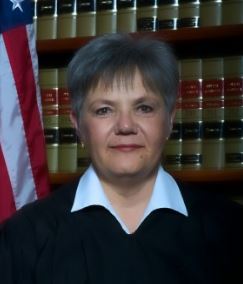
But it was Mumford’s final exchange with Judge Brown in Portland that captures the essence of the fearless, warrior, bulldog—who doesn’t know the word “quit”—that sealed his reputation as public enemy number one to the U.S. Department of Justice.
On Oct. 27, 2016, the jury had just returned its verdict acquitting Ammon Bundy (and six other defendants) of all charges. Mumford said, “Ye- ye-your honor, in light of the jury’s not guilty verdict, these defendants, including m-m-my client Ammon Bundy, should be released from custody.” Judge Brown responded that she didn’t have any paperwork requiring her to continue to hold Ammon, but perhaps the U.S. Marshals might. Mumford responded, “If they h-h-have any such paperwork, I’d like to see it.” The marshals said he should come down to their office on the 4th floor to see what they could come up with but Mumford said, “No, you should go get it, and b-b-bring it into the court so that Judge Brown can make a ruling.” At that point, among winks and nods from the judge, the marshals converged on Mumford, tackled him, pounded his head into the floor, and hit him with a Taser. They handcuffed him, threw him in a holding cell, and ultimately charged him with impeding federal officers and creating a disturbance. Judge Brown remained on the bench for the duration, perhaps relishing in the sweet revenge she and the marshals were extracting as a pound of flesh from Marcus Mumford. Speaking to Judge Brown before the marshals hauled him away in handcuffs, Mumford said, “Your Honor, I just want you to know what an honor it has been to practice in your court.”
While Mumford sat in a cell — as he says, “trying to think critically about every life decision I had ever made that could have led me to that point” — his staff went down to the Marshal’s office to see what kind of paperwork they could produce. After searching for approximately 20 minutes, a marshal came out and admitted that either there was no order or they couldn’t produce any paperwork to justify continuing to hold Ammon Bundy in custody.
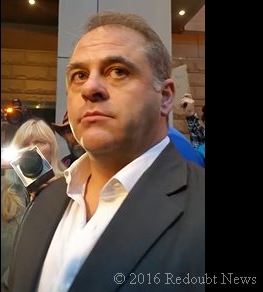
Later that evening, in jubilation over the verdict, some of the other attorneys, including Matt Schindler, and their clients, went to a local establishment to celebrate. While there, they received a text from Mumford, who had finally been released, asking where they were so that he could join them. According to Schindler, Mumford walked in looking like he had just been in a fight, but he walked over, slammed his fist down on the table, and instead of mentioning a word about what had happened to him, with a great big smile, exclaimed “NOT G-G-GUILTY, mother-f-f-$*%#!!!”
Unfortunately, that was just the beginning of Mumford’s troubles stemming from his court victory. First he was charged with impeding federal officers and causing a disturbance. Then the chief federal judge for the District of Oregon sought to have him banned for life from practicing in the federal courts of Oregon. Mumford is still fighting that, but the charges against him were dropped like a hot potato when the visiting judge overseeing the case ordered that the U.S. Marshals produce all text messages amongst themselves leading up to their assault on Mumford.
Given their respective track records, it seems to be the consensus that Marcus Mumford and Judge Gloria Navarro should be kept as far apart as possible.
WHO IS MARCUS MUMFORD, AND HOW DID HE BECOME SUCH A BULLDOG?
What most people may not know is that Marcus Mumford has a speech impediment. He stutters. Some days are worse than others. But, unlike many lawyers, he is no silver-tongued devil. He has to work very hard at what he does. When Marcus introduces himself to a jury, he often does it with a joke. “H-h-hell-hello, I’m Marcus Mumford. I-I-I-I’m sorry, b-b-but I stutter. So if you call m-m-me, don’t hang up too soon if you don’t hear s-s-someone speak, because I may still be trying to g-g-get the first word out of my mouth.”
Marcus Mumford grew up as the son of a genteel country lawyer in a family of competitive brothers, and although his family noticed that Marcus was very smart, his tongue couldn’t quite keep up with this brain. What he lacked in natural speaking talent, he made up for with hard work and careful listening skills. That’s something young Mumford picked up while coming of age on a dairy farm in Clifton, Idaho.
After serving as a military attorney in the Judge Advocate Generals Corps, Mumford’s dad became a rural county prosecutor, in southern Idaho. His parents decided that with six young sons, they needed a farm on which to raise them. So his dad left the JAG Corps, and they returned to Idaho and took over the family dairy farm where his father had grown up. “There is no way to describe all the ways the experience of growing up on a farm teaches lasting life lessons and gives you a connection to reality,” Mumford says, “including the law of the harvest and the idea that you reap what you sow.” Some lessons he learned the hard way from his Uncle, Jeff Mumford, who, in his quest for perfection in operation of the farm, fired Marcus three times before he turned 15.
Throughout his life, Mumford’s stuttering has been both a blessing and a curse. His parents did everything they could to help Marcus with his speech but they also took a “get tough or die” approach. Once, they encouraged him to enter an essay contest. The rub was that the essay was supposed to be recorded on a cassette tape, for submission. Young Marcus wrote a great essay, but he stuttered so badly he couldn’t make a suitable recording, and his essay was disqualified. Idaho congressman Richard Stallings heard of his plight, however, and read the essay into the congressional record. Stallings then offered Marcus a congressional internship in Washington, D.C., fresh out of high school.
At some point Marcus wondered if the world might be ready for a “stuttering lawyer.” Although it seemed like a long-shot, as renowned L.A. trial lawyer, Tom Nolan, once ended up observing in a conversation with Mumford: “I don’t know if you’ve noticed, but with your stuttering, juries seem to listen more carefully and pay better attention to what you say…and that is a huge advantage for any trial attorney.”

Marcus’ legendary work ethic gave him the opportunity to work with some of the best – including Nolan. Based on his stellar law school record, he landed a judicial clerkship with federal 10th Circuit Court of Appeals Judge, Monroe McKay. From there he landed a job with Skadden, Arps, Slate, Meagher & Flom, one of the biggest law firms in the world. It was during that phase of his career that he met and married Michelle Quist, who was likewise a 10th Circuit appellate court clerk, who also went on to work at a big NYC power law firm, and became a very accomplished attorney in her own right – as well as mother of seven children, including a set of twins, and a special needs child with Down Syndrome. She is currently a columnist and editorial writer for the Pulitzer Prize-winning Salt Lake Tribune.
But there are a lot of challenges associated with being a successful trial lawyer. For one thing, it’s a financial rollercoaster, virtually impossible to really have more than about one big case going at a time. And if you happen to be a perfectionist, look out. According to Michelle, during trial and in the weeks leading up to it, it’s not uncommon for Marcus to work 24/7, with just a cat nap at 4 or 5 a.m., before getting up and repeating it all over again. Mumford has maintained this kind of schedule for months on end, in multiple, marathon federal jury trials. What exacerbates this most, and is likewise a blessing and a curse, is Marcus’ quest for perfection, to the point that he is willing to drive himself to unquestionable extremes in striving for success for his clients. These are great characteristics to have on your side if you’re the client, but not so much if you’re the wife and/or children.
On that score, the former Michelle Quist Mumford had something in common with John Adams’ wife, Abigail. According to C. James Taylor, Editor-in-Chief, Adams Papers, Massachusetts Historical Society:
“Business and politics separated John Adams from his wife and family for much of the time. When Adams was a young lawyer, his travels to distant villages on the court circuit kept him away. Even when he was at home, Abigail scolded him for staying out late at night while attending various meetings. After 1776, he spent weeks and months abroad or in Philadelphia on government business. It seems that John Adams spent little time with his family.

“Abigail often felt lonely and miserable, especially when Adams was not with her for the birth of their children. Usually, she viewed her suffering as a patriotic sacrifice. Her most trying time was in 1777, when she lost her unborn baby while Adams was in Philadelphia. Only the death in 1800 of her son Charles from acute alcoholism ever affected her more.”
Needless to say, Mumford acknowledges this can be really tough on a healthy family life. In the end, his remarkable record has come at a great cost to his marriage (which didn’t survive), family—and his body.
“One time I broke my foot on the first day of trial,” Mumford says, “but couldn’t do anything about it. It’s one of those life lessons you learn growing up on a farm. You have to make hay while the sun shines. The show must go on.” When the trial ended a month later, he had to have his foot re-broken and properly re-set. On another occasion, while Michelle was pregnant, she and two children were involved in a bad car accident, but Marcus was not in a position to be there for them. And when their young, special-needs son was in the hospital fighting for his life, Marcus was in court fighting for his client.
As an attorney, Mumford is fearless. He is a gladiator, inherently driven to extremes to win in a brutal, high-stakes war of words in which he has a distinct disadvantage. “My basic operating philosophy comes from former NFL coach George Allen,” he says, “‘Hit hard and good things will happen’!” “Another major influence in my life is Gerry Spence and his book ‘The Making of a Country Lawyer.’”
Influential people in Mumford’s life, as well as his own observations and experiences, have instilled and reinforced in him a deep sense of justice/injustice, and an abiding distrust for “the powers that be” – especially the federal government — that seek to oppress and dominate others. “It’s like this big recurring theme in my life growing up in the West — ‘They’re’ coming for you; they’re gunning for you.’ Who’s ‘they’? I ask. ‘You know, the powers-that-be. You know, Johnston’s Army, Dan Love, or the federal marshals.’ It’s usually the federal government.”
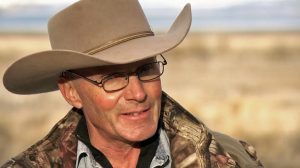
Mumford, who is also working on the LaVoy Finicum wrongful death case, says: “There ought to be a college course about how a small, little-known Arizona rancher by the name of LaVoy Finicum, with a Youtube channel and a smartphone, challenged the federal government’s narrative and PR machine to the point that they were determined to take him out.” There is no question in Mumford’s mind that there was a pre-planned, fully pre-meditated hit on Finicum. “There’s no question that they were trying to provoke a bigger shoot-out, and to take out others too, but LaVoy was their high priority target.”
With this in mind, one can’t help but wonder whether Marcus Mumford is on a similar path. The irony of it all brings this discussion full circle, because if there was another human being, who was not a trial lawyer but who might have embodied many of the same virtues represented by Atticus Finch (that few actual lawyers seem to possess), it was LaVoy Finicum.
So, in the end, as much as I admire Marcus Mumford and the legal successes he has achieved against all odds, in a world inhabited by mere mortals, the reality is that there is no such thing as a real-life, flesh and blood Atticus Finch embodied in just one human being — although Marcus Mumford may come as close as any other real-life modern trial lawyer in the past 250 years.
You may also like
-
Arizona rancher sues to stop million-acre national monument
-
VDH: How to Destroy the American Legal System
-
Colorado conservation group sues wildlife officials for skirting NEPA to get wolves into the state
-
Polis adds another radical activist to Colorado Parks & Wildlife Commission
-
Public Land Expansion Syndrome in the West

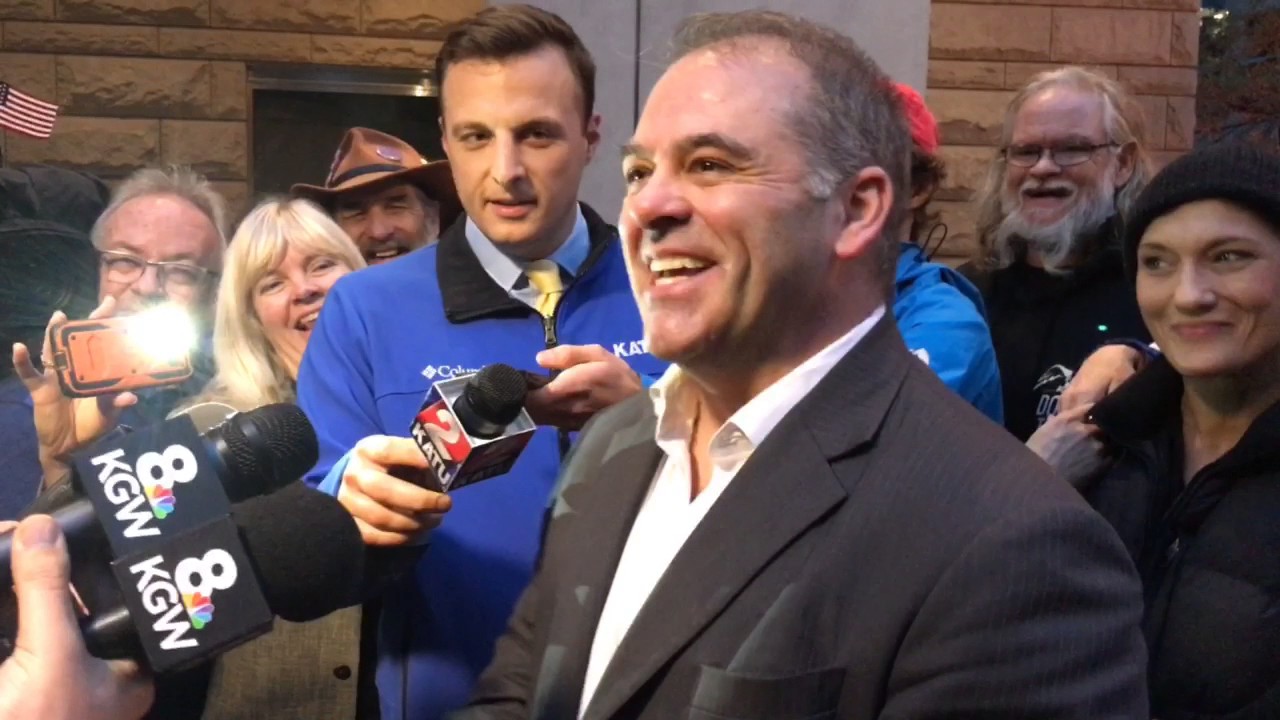
I just discovered Marcus died, he was my friend. He was a defender of truth and the darts of hell were aimed at him but he did Not flinch. Come What May , he stood for freedom, and stood against corruption
Thank you very much for this !!
I know and feel very much akin to Marcus !! I’ve had the courts kick my ass too many times, and they are definitely in constant CYA mode, and don’t care who they hurt. At 2 years old, they took me and my Mom, and my other brothers and sisters and incarcerated us. The fed mining courts stole claims from us. The Mormons were a big influence to hurt us, because they are in so many key power quasi/political positions to always rule against us. That includes the Utah Supreme Court. Very corrupt, and not a good venue to present in, ever. We’ve lost our lands, now, and my Grandfather, my Dad, and I have worked all our lives to establish a refuge for our families.
They all seem to have a vested interest in seeing us fail.
LaVoy was neighbor to us on the Arizona Strip !
His IS a legal talent that will be missed.
2 bad Marcus left so early.
Federal govt will just keep on running over more little folks now.